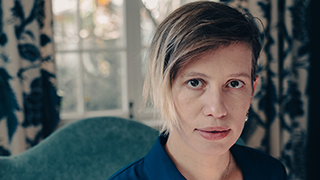Communication Professor Is Keynote Speaker - Seton Hall University
Friday, November 18, 2022

Digital Religion refers to the study of offline and online interactions with religious
concepts, including the impact of digital/social media on religious practice and the
impact of religious practice on digital media. “The Catholic Church thinks in centuries
– religion moves very, very slowly, whereas digital media thinks in terms of days
or weeks, explained Tsuria. “So we have the opportunity to see what happens when it
interacts with this very slow-to-change social structure; we get to see how social
norms are created.” Examples of this interaction can be seen in religious institutional
pages on sites like Facebook, or the mobilization of movements like “#ChurchToo” on
Twitter.
Tsuria has been interested in and working with this area of research since she noted
the deep-rooted impact of religion on society and how this impact is often downplayed
in research. She was able to explore this topic in her B.A. program at the Hebrew
University of Jerusalem and more deeply in her M.A. program at Copenhagen University.
She was then able to further work with leading researchers in Digital Religion during
her Ph.D. program at Texas A&M University. Tsuria’s rich interdisciplinary background
makes for a perfect fit with Seton Hall’s Institute for Communication and Religion.
Her keynote address, titled Digital Media: When God Becomes Everybody – the Blurring
of Sacred and Profane, addresses the sacred observation of digital media in modern
society, and the impact of the mundane and the sacred being used at once. If we consider
the use of digital media as a sacred practice, Tsuria argues, as well as for mundane
purposes, such as the use of a cellphone as an online banking or shopping tool, what
is the impact of using the same device in both manners? Tsuria seeks to explore that
question through this address, and to welcome a lively discussion of the topic with
the scholars in attendance at this event.
This workshop is one of many endeavors connecting Seton Hall University and the Institute
for Communication and Religion to a global community of researchers. By interacting
and sharing research internationally, Seton Hall contributes to a global knowledge
base and benefits from it as well. Tsuria expressed excitement about sharing in this
experience as it opens communication channels which would otherwise go unexplored.
“I have been very lucky to follow my passion in my research,” said Tsuria. “Having
this opportunity to be a keynote speaker really means that I’m taking the next step
to leadership in my field, and I want to use this step to empower other individuals
or researchers who are just starting out to follow their own passions and show the
world what great minds can do.”
About the Institute for Communication and Religion
Launched in Fall 2017, the Institute for Communication and Religion within the College of Communication and the Arts provides a nexus for ongoing scholarly exploration of communication topics critically
important to religion and society. Guided by the spirit of ecumenical and interreligious
cooperation, the Institute seeks to engage in public dialogue and debate, promote
academic inquiry and support the religious dimension of creativity — all while upholding
the values of servant leadership, curricular innovation and intellectual excellence.
For more information click here to visit the Institute for Communication and Religion.
Categories: Faith and Service, Science and Technology






